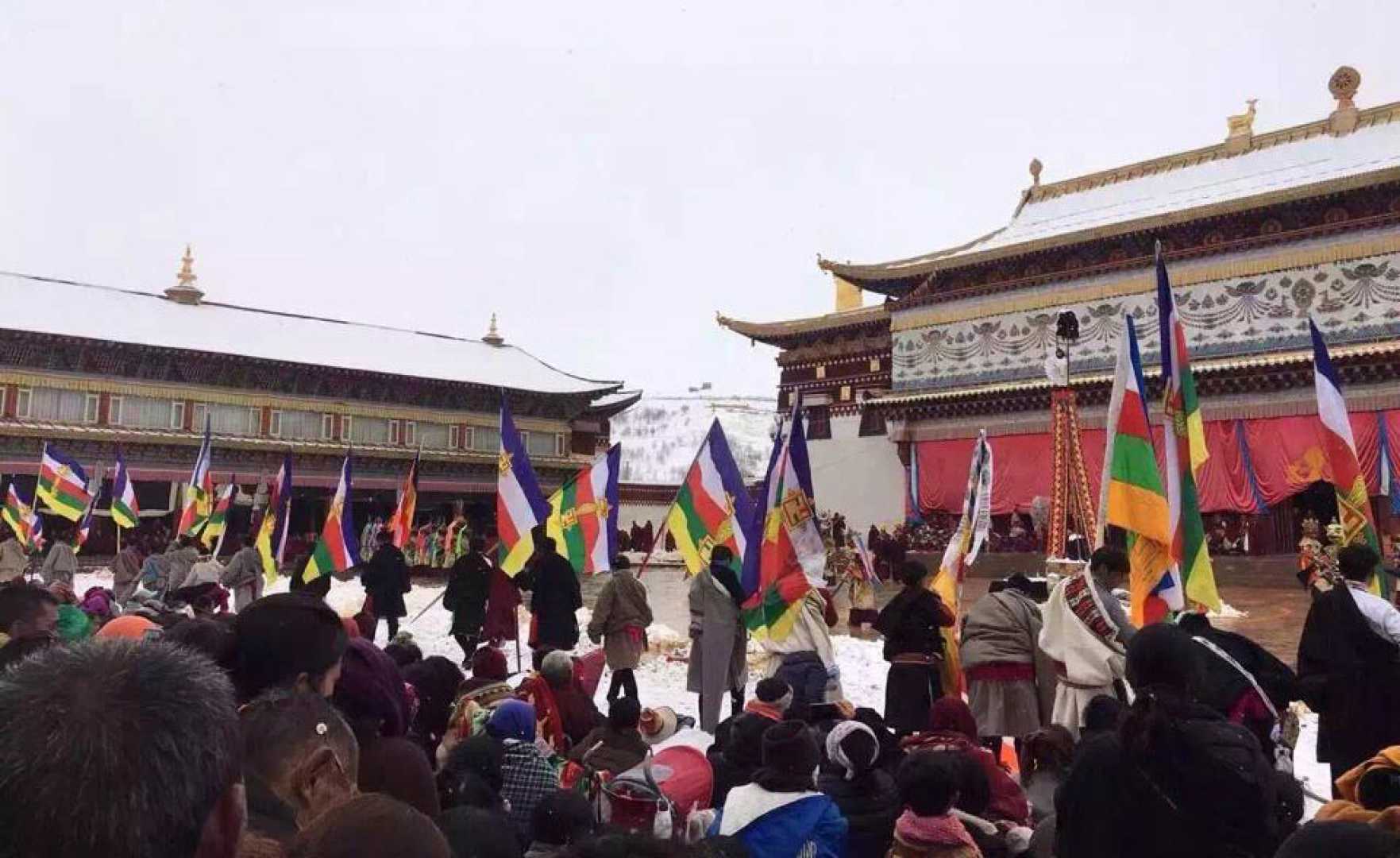World
Tibetan Monk Speaks Amidst Surveillance in Sichuan Province

Aba, Sichuan, China — A monk at Kirti monastery spoke out recently about the oppressive situation in Tibet while navigating a landscape fraught with surveillance and risks. Despite eight unidentified men following him, he addressed the harsh realities for Tibetans living under Chinese rule, stating, “Things here are not good for us.”
This monastery has long been a hub of Tibetan resistance, known for its bold stance against Beijing‘s rule. The presence of a police station at the main entrance emphasizes the level of control in the area, with surveillance cameras watching every corner. “They do not have a good heart; everyone can see it,” the monk added, warning, “Be careful, people are watching you.”
The Chinese government has governed Tibetans for nearly 75 years, viewing Tibet as an integral part of China. While the region has seen infrastructure improvements, many Tibetans who fled emphasize that such developments come alongside increased military presence, which suppresses their identity and freedoms. The Dalai Lama, Tibet’s exiled spiritual leader, has been branded a ‘separatist’ by Beijing, and any display of support for him can result in imprisonment.
Aba, known in Tibetan as Ngaba, lies just outside the Tibet Autonomous Region (TAR). The town was the site of significant protests in the 2008 uprisings, which escalated into violence when a monk held up a photo of the Dalai Lama. This led to the deaths of numerous Tibetans, highlighting the severe consequences of dissent. In the wake of these protests, over 150 self-immolations have occurred, making Martyr’s Row a somber reminder of ongoing resistance.
In a rare glimpse into the monastery, monks gathered early for morning prayers, filling the air with low chants and ritual smoke. “The Chinese government has poisoned the air in Tibet. It is not a good government,” one monk remarked. He expressed deep discontent over the oppression faced by Tibetans, claiming, “We Tibetans are denied basic human rights. The Chinese government continues to oppress and persecute us.”
The urgency around the future of Tibetan Buddhism is heightened by the Dalai Lama turning 90 this week, as hundreds of followers gathered in Dharamshala, India, to celebrate him. In a recent message, he reaffirmed that his successor will be chosen only after his death. This reignited tensions as Beijing has also claimed it will seek to control the next reincarnation. “That’s just the way it is. That’s the reality,” the monk concluded before leaving.
As the road to Aba winds its way through stunning mountain landscapes and traditional Tibetan culture, the dichotomy between religious heritage and state control continues. With the Chinese government exerting its influence, Tibetans are left to grapple with the erosion of their cultural identity as they resist in various ways. The question remains: how long can the spirit of Tibetan Buddhism endure under such pressure?












